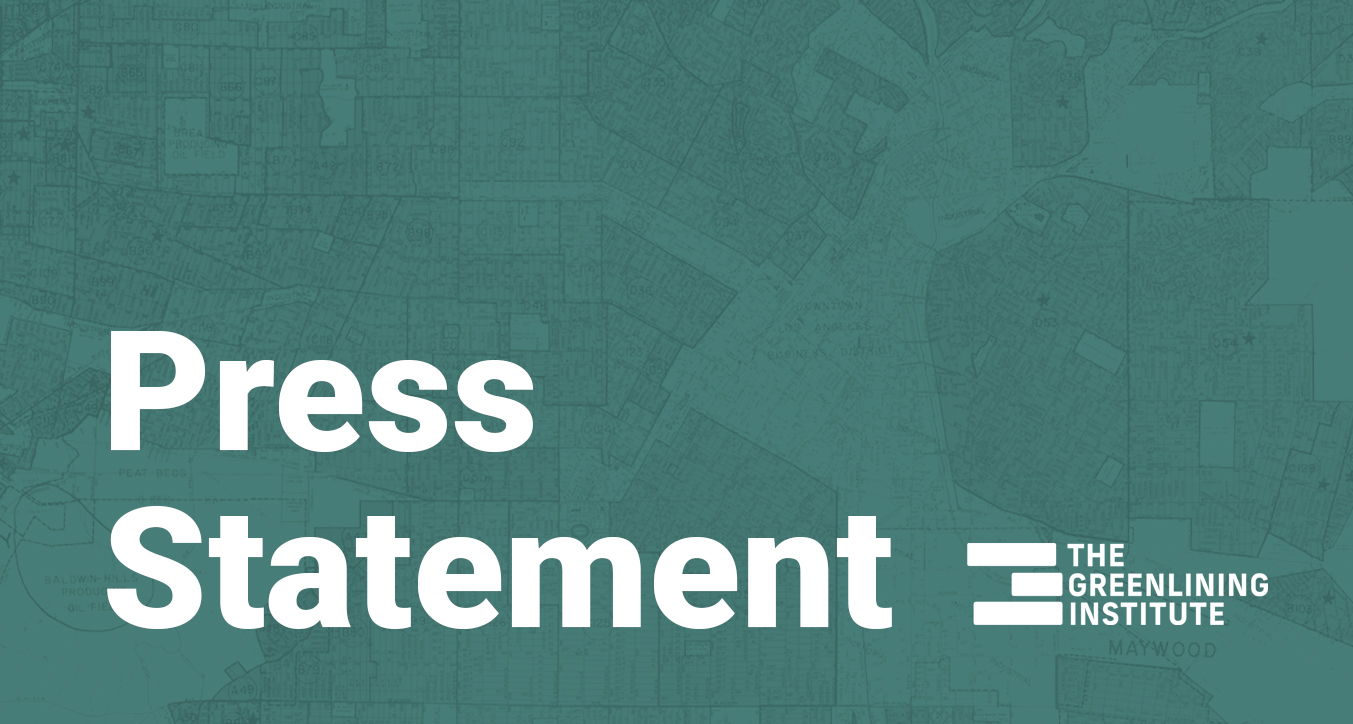Extend the census deadline to protect public health

Media Contact
Danielle Bell
SENIOR PROGRAM MANAGER FOR MEDIA RELATIONS
media@greenlining.org danielle.bell@greenlining.org
By Gissela Moya and Vinhcent Le
SFExaminer
In 1920, as the world was recovering from the devastating 1918 Spanish Flu, the U.S. Census Bureau told Congress that the “ravages of the influenza pandemics” meant “many cities and towns have been disappointed with the census figures and have filed protests questioning their accuracy.” Nearly 100 years later, we risk repeating history as the coronavirus pandemic undermines outreach efforts for the 2020 Census.
To protect community health, and to ensure we have an accurate count, Congress should act to extend the census deadline by up to one year. Brazil postponed its 2020 Census by a year due to fears that the coronavirus outbreak could risk the health of census workers and the households they survey. Congress should follow suit and allow the Census Bureau to extend its December deadline to complete the census. An accurate census is key to our democracy, since it ensures our cities and towns receive a fair amount of federal funding and political representation.
Census workers who knock on doors and ask residents to participate are responsible for up to 40 percent of responses (you can also respond to the census online, over the phone or by mail). These workers were supposed to begin outreach in May. However, social distancing and lockdown orders will negatively affect that work, resulting in lower participation and possibly a massive undercount — a development that would harm hard to count populations such as Low-income households, communities of color and non-English speakers the most. With a coronavirus vaccine at least one year away, delaying in-person census outreach will help “flatten the curve.”
Prior to the outbreak, the census was projected to undercount up to four million people. However, the spread of the coronavirus means these numbers could balloon. The Bureau has already suspended census field operations twice, first delaying the start of in-person outreach until April 1 and revising it later to April 15.
Outreach to immigrant and low-income communities has also ground to a halt as officials cancel large gatherings and close public spaces like libraries and schools. Closed college campuses make counting students living on campus much more difficult and confusing: Students should be counted where they live most of the time — i.e. in their dorms — regardless of where they may be temporarily.
On a more practical level, the economic uncertainty of this public health crisis will likely depress census participation, particularly among low-income groups who do not have the luxury to telework. Only 16 percent of Latino and 20 percent of Black workers are able to work from home, compared with 30% of white workers. Due to the coronavirus pandemic, unemployment claims have begun to rise, and economists expect that to continue.
Amidst this very real economic and health anxiety, census participation may seem relatively unimportant to people just trying to get through their daily lives. However, Congress must extend the census deadline to ensure we have accurate data because census data is used to make important decisions across the country. Medical researchers in 2018 warned that “a census miscount of the population could create challenges for public health surveillance and research activities that inform public health policies and interventions.” We should heed these warnings, as health researchers are using census data to model the spread of the coronavirus and federal and state officials are now scrambling to fairly distribute critical supplies of masks, ventilators and other equipment to hospitals across the country. Call your congressperson and ask them to take action on extending the 2020 Census.
Vinhcent Le is technology equity legal counsel at The Greenlining Institute. Gissela Moya is the Manny Garcia Technology Equity Fellow at The Greenlining Institute.



